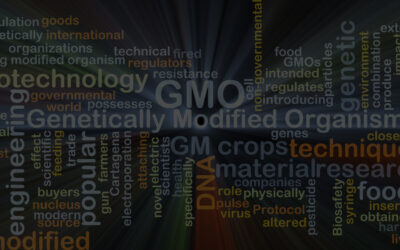The following article summarizes the recent publication, GMO Myths and Facts, by Claire Robinson.
GMO Myths & Facts: A Summary
By Melissa Diane Smith
For the past several decades, the public has been fed the rhetoric that genetically modified (GM) crops and foods are needed to feed the world’s growing population and to meet the challenges that farmers face, including climate change as well as pests and diseases. However, scientific research and real-world farming experience show that GM crops and foods have not delivered on their promises of increased yields or reduced toxic chemical inputs.
Instead, GM crops have presented farmers with new challenges of controlling herbicide-resistant superweeds and Bt-resistant superpests. In addition, GM crops have not been shown to be safe to eat, and existing research shows that some GM crops – and the pesticides that go hand in hand with them – pose worrying health risks.
These are the conclusions made in GMO Myths and Facts: What they don’t want to tell you about genetically modified crops and foods, a meticulously referenced, reader-friendly, 28-page booklet written by Claire Robinson, editor of GMWatch.org, and produced by the Sheepdrove Trust to educate and inform the public. Download your free copy of the booklet.
At-a-glance
In the booklet, you’ll learn vital facts in the following areas.
- Yield: Conventionally bred plants outperform GM crops in terms of:
- Yield
- Disease resistance
- Enhanced nutritional value
- Tolerance to extreme weather conditions and poor soils.
- Pesticide use: Most GM crops are tolerant to herbicides, enabling farmers to spray the field liberally with that herbicide, killing all plant life except the crop. The spraying of crops with herbicide such as glyphosate, the active ingredient in Roundup weed killer, has led to the development and spread of superweeds—weeds that adapt to and withstand the herbicide, resulting in yet more herbicide spraying.
- Massive rise in the use of glyphosate: Globally, the use of glyphosate, an herbicide that has been identified as a potential cause of cancer and is linked to other diseases including liver and kidney disease, has increased 15-fold since the introduction of GM glyphosate-tolerant crops.
- GM Bt crops: GM Bt crops have been genetically engineered to produce insect-killing Bacillus thuringienisis (Bt) toxins in their cells so that pests that eat the plants will die. The use of GM Bt crops has led to the development of “super insects” that have become resistant to Bt’s insect-killing effects.
- GM Bt crops have been found to have harmful effects far beyond the specific pests they were designed to control, including in butterflies, beneficial pest predators, bees, aquatic organisms, and beneficial soil organisms. In feeding trials in mammals, GM Bt crops have been shown to have adverse effects including:
- Toxic effects in the small intestine, liver, kidney, spleen, and pancreas
- Disturbed functioning of the digestive system
- Altered weight gain compared with controls
- Male reproductive organ damage
- Blood biochemistry abnormalities
- Immune system disturbances
- Lack of GM food testing: People often assume that governments and their independent agencies rigorously test and ensure the safety of the foods we eat. This is not the case with GM foods. Governments have made GMO developer companies that stand to profit from the sale of GMOs responsible for ensuring their safety – a practice that many liken to leaving the fox in charge of the henhouse.
- The risks of consuming GM foods: There are no safety studies in humans on the health effects of GM foods. But animal studies reveal worrying risks, including:
- Multiple organ damage
- Immune responses and abnormal allergic-type reactions
- Enlarged lymph nodes
- Liver and kidney damage
- Digestive disturbances
- Altered gut bacteria
- Severe stomach inflammation and heavier uteruses.
- In addition, most feeding studies with GMOs are short- or medium-term, which may not reveal if changes in GM-fed animals could develop into serious disease in the longer term. Human health and life expectancy in the US are declining, and GM foods and the pesticides that are used with them cannot be ruled out as one cause among many.
- Gene-editing: Gene-editing technologies (including CRISPR-Cas9, TALENs and ZFNs) are being used to generate not only new varieties of food crops, but farm animals as well. Although proponents claim that these techniques are precise and controllable, a growing body of scientific research shows that gene-editing gives rise to unpredictable results, including unexpected mutations (damage to DNA) both at the site targeted for editing (“on-target mutations”) and elsewhere in the genome (“off-target mutations”). Just like earlier GM technologies, the “new GM” technology of gene-editing will use up valuable resources and distract from the existing proven solutions to the problems of food production and agriculture.
- Food security: The answer to ensuring food security and sustainably feeding the world’s population is not GMOs, which undermine seed saving and food security in developing countries. Instead, the answer lies in agroecology, a range of low-input and organic farming methods that preserve soil and water while minimizing the use of external inputs, such as pesticides and fertilizers. These methods have been proven to:
- Deliver safe and abundant food
- Produce dramatic increases in yield
- Keep seeds within the control of farmers and free from patent restraints.
Melissa Diane Smith is a health journalist, respected author on the topic of GMOs, holistic nutritionist, and environmentalist.



